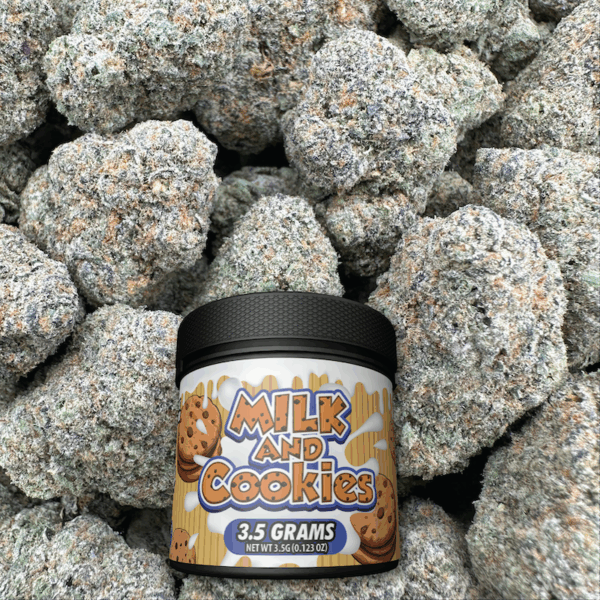
CBD, short for cannabidiol, has surged in popularity, becoming a prominent ingredient in a wide array of health and wellness products. From CBD oils and tinctures to skincare products and edibles, CBD’s versatility and potential health benefits have captured global attention. But what exactly is CBD, where does it come from, and how does it interact with our bodies? Let’s delve into the fundamentals of CBD, exploring its effects and the reasons behind its widespread appeal.
Why CBD?
CBD’s allure lies in its potential therapeutic properties and diverse applications. People seek CBD for various reasons, including managing anxiety, alleviating pain, improving sleep quality, reducing inflammation, and even supporting overall well-being for their pets. Its non-intoxicating nature makes it an attractive option for those seeking health benefits without the psychoactive effects associated with THC.
Moreover, CBD is available in various forms, such as oils, capsules, gummies, and topical creams, making it easy to integrate into daily routines. This accessibility and variety of product types have significantly contributed to its growing popularity. As consumers increasingly turn to natural health solutions, CBD aligns perfectly with this trend, offering a plant-based alternative with minimal side effects.
Demystifying CBD: What Is It?
CBD is one of over 100 active cannabinoids found in the Cannabis Sativa plant. Unlike THC, the compound responsible for the “high” associated with cannabis, CBD is non-psychoactive. This means that CBD doesn’t cause neuro-physiological degradation, making it an appealing choice for those seeking the therapeutic potential of cannabis without intoxication.
In many regions, including India, CBD is often derived from the leaves of the hemp plant (Cannabis Sativa Linn.). Cannabis has a long history of medicinal use, dating back thousands of years. However, it is only recently that researchers have begun isolating and studying cannabinoids like CBD. Today, cannabis leaf-derived CBD products are widely available and legal in various parts of the world.
How CBD Interacts with the Body: The Endocannabinoid System
One of the most fascinating aspects of CBD is its interaction with the human endocannabinoid system (ECS). The ECS is a complex network of receptors, endocannabinoids (naturally produced compounds), and enzymes that work together to maintain homeostasis, the body’s internal balance. This system regulates a wide range of bodily functions, including mood, sleep, appetite, immune response, and pain perception.
The body’s two primary cannabinoid receptors are CB1 and CB2. CB1 receptors are primarily located in the brain and central nervous system, influencing pain sensation, mood, appetite, and memory. THC binds directly to CB1 receptors, causing a psychotropic effect. CBD, however, interacts indirectly with CB1 receptors, modulating their activity without causing a “high.”
CB2 receptors, mainly found in immune system cells, are involved in regulating inflammation and immune response. CBD’s interaction with CB2 receptors contributes to its anti-inflammatory properties. Additionally, CBD is believed to inhibit the enzyme FAAH, which breaks down anandamide, an endocannabinoid known as the “bliss molecule.” By slowing the breakdown of anandamide, CBD may help elevate mood and manage anxiety.
CBD vs. THC: Addressing the Confusion
While THC is a major cannabinoid with psychoactive effects, CBD’s action is more indirect. It modulates receptor activity rather than binding directly, promoting relaxation and helping manage pain and anxiety without intoxication. CBD influences mood but doesn’t alter mental clarity, making it suitable for those seeking its therapeutic benefits.
CBD also interacts with other receptor systems beyond the ECS, such as serotonin receptors (regulating mood and anxiety) and TRPV1 receptors (associated with pain and inflammation). These interactions contribute to CBD’s broad therapeutic potential, making it a popular choice for those with anxiety, inflammation, epilepsy, and various other health concerns.
The Physiological Impact of CBD
CBD’s unique interactions within the body can potentially address a wide range of health issues. Its effect on serotonin receptors may help alleviate anxiety and improve mood, offering a natural alternative for managing stress and mental health. CBD’s impact on TRPV1 receptors and its anti-inflammatory effects have made it a popular choice for individuals dealing with chronic pain, arthritis, and other inflammatory conditions. It may also improve sleep quality by addressing underlying issues like anxiety and overthinking and regulating sleep patterns by interacting with receptors related to the sleep-wake cycle.
Additionally, CBD has shown neuroprotective properties, potentially benefiting people with neurodegenerative conditions. Its antioxidant and anti-inflammatory effects may protect brain cells from damage, offering therapeutic support in diseases like Alzheimer’s and Parkinson’s. CBD has also gained recognition for managing certain forms of epilepsy, with the FDA approving a CBD-based medication called Epidiolex for treating rare forms of epilepsy. 
The Future of CBD
As research into CBD’s effects expands and regulations evolve, the future looks promising for its applications in healthcare and wellness. However, regulatory challenges remain, with many countries still developing guidelines around CBD use, labeling, and marketing. As scientific research continues to reveal CBD’s therapeutic effects, and as regulations evolve, CBD is poised to become a key component of healthcare and modern wellness. Understanding CBD’s basics enables consumers to make informed decisions as they explore its potential role in their lives.
Conclusion
CBD is more than just a wellness trend; it represents a scientifically backed compound with a wide array of potential CBD benefits. From its ability to alleviate anxiety and reduce inflammation to its neuroprotective properties and potential in managing epilepsy, CBD offers a holistic approach to health and well-being. As research continues to unfold and regulations become clearer, CBD is poised to play an increasingly significant role in both modern and traditional wellness practices worldwide.














